Why Hundreds of Jews Traveled to the Largest Muslim Country Amid a Pandemic
Over 600 Jews traveled to Kazakhstan in the past week despite COVID-19 restrictions and no direct flights from Israel. They were granted special permissions. What brings them to this Muslim country?
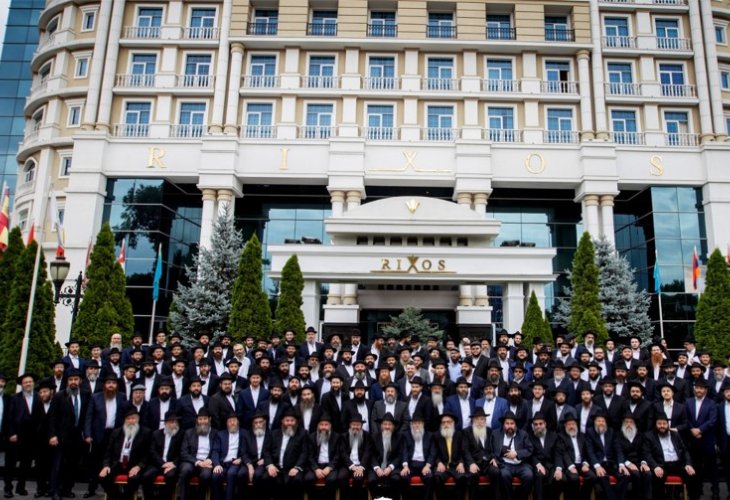
Despite being considered the world's largest Muslim country, over 600 Jews entered Kazakhstan last week. There are no direct flights from Israel, and due to the contagious Delta variant of COVID-19, Kazakhstan has stringent entry requirements, allowing only those approved by a special panel. Yet, these Jews overcame the odds to receive extraordinary permission to enter.
Why would so many Jews venture into a Muslim nation? Those familiar with Chabad history know that last week marked the yahrzeit of Rabbi Levi Yitzchak Schneerson, the father of the Lubavitcher Rebbe, Menachem Mendel Schneerson, who passed away 77 years ago and was buried in Almaty, Kazakhstan's capital.
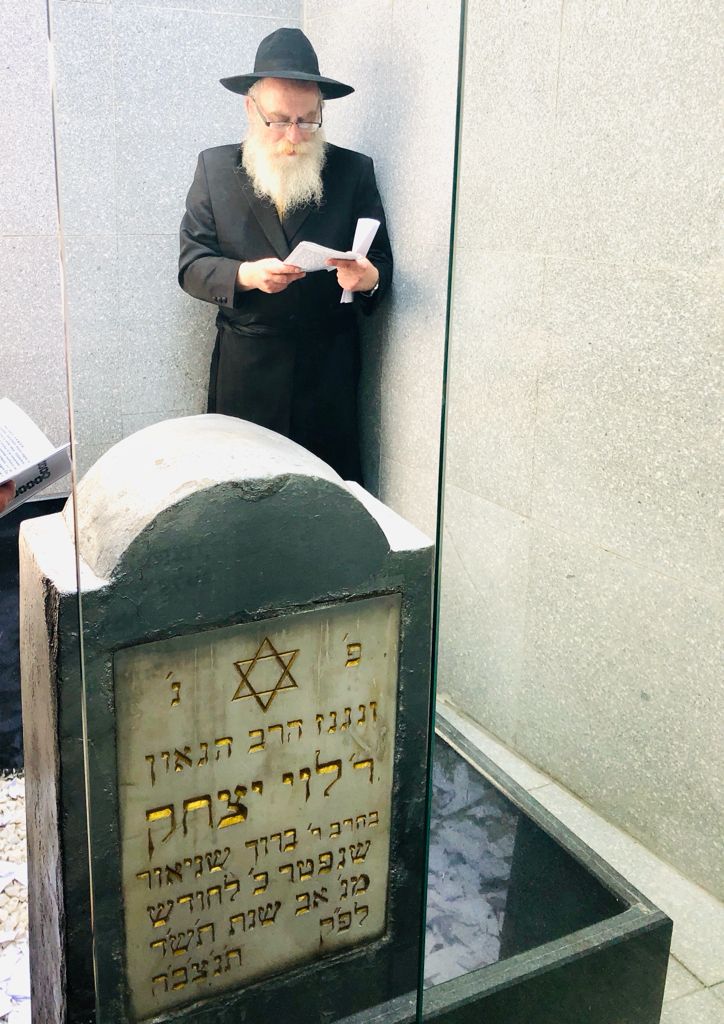
30,000 Jews, 7 Communities
Speaking with Rabbi Yeshayahu Cohen, the chief rabbi of Kazakhstan, he explains that every year the yahrzeit of Rabbi Levi Yitzchak is a three-day event. Many wish to attend despite high travel costs from Israel, sometimes pricier than flying to New York.
Rabbi Cohen shares about Rabbi Levi Yitzchak: "He was a great scholar, the rabbi of Yekaterinoslav in Ukraine. For thirty years, he served as the city's rabbi until he was exiled to Kazakhstan for spreading Judaism, a forbidden act under communism. He endured many hardships in Kazakhstan and eventually passed away and was buried in Almaty.
"Back in the 1970s, Chabad followers erected a tent at his burial site," Rabbi Cohen details, "and despite the communist regime, many came to pray. Many prayers during that time were for exit permits from Russia, which were virtually impossible due to the Iron Curtain."
According to Rabbi Cohen, each year sees more people coming to pray at Rabbi Levi Yitzchak's resting place. "People connect with his unique Torah persona and the miraculous stories that surrounded him in life and death. Many also study his writings on Kabbalah, known for distilling complex Torah concepts into clear lessons. Today, Jews from around the world, especially from Kazakhstan, Russia, Ukraine, the US, and Israel, attend his yahrzeit. Local Jews, about 30,000 across Kazakhstan, also join.

How Did 30,000 Jews End Up in Kazakhstan?
"Jews arrived for various reasons—starting with the Silk Road from Uzbekistan and continuing through the cantonist period when Jews were barred from major cities unless they served in the military. There's also an Iranian Jewish community that fled here via Turkey, speaking a variant of Arabic, descendants of families exiled by Stalin, and World War II refugees. Unique to Kazakhstan's Jewish communities is the rarity of intermarriage, with clear community identities."
"Kazakhstan is vast, with about 19 million residents," Rabbi Cohen adds. "We have Jewish activities in seven major cities, with nine Chabad houses, three in Almaty. The Jewish communities are spread out due to the country's size, sprawling 90 times larger than Israel."
Rabbi Cohen is not just a Chabad emissary but also serves as the chief rabbi of Kazakhstan. "I've been here since 1994, establishing Jewish centers, synagogues, educational institutions, mikvehs, and providing kosher food," he shares.
The activity is nonstop. "30,000 Jews is a significant number, and we try to meet all needs. We maintain a vast kosher certification with two shochtim providing kosher meat without a price markup, knowing higher costs might deter some from kosher meat, which we want to avoid."
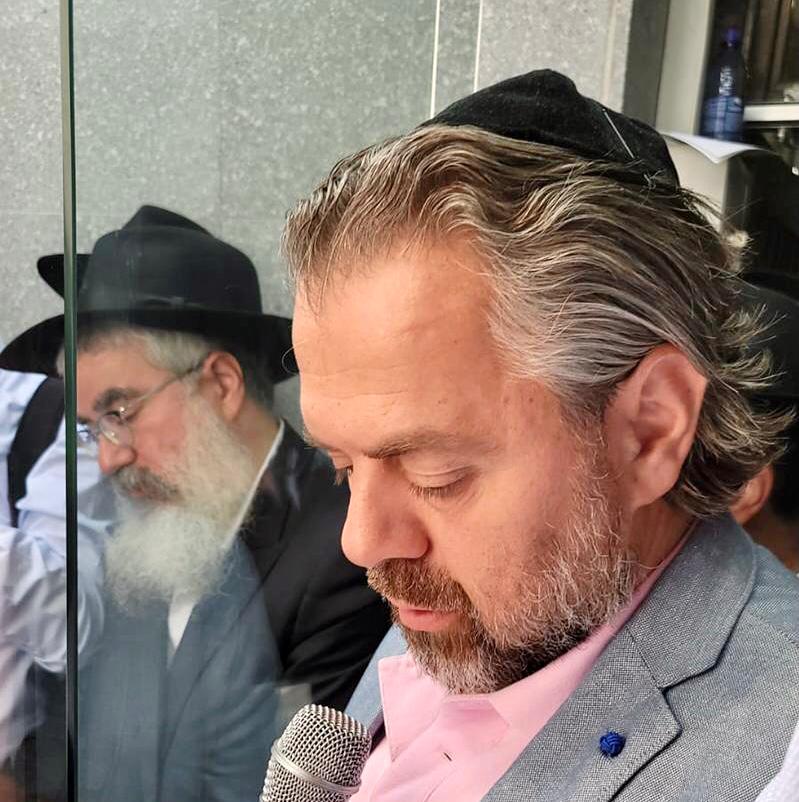
No Anti-Semitism and No Fear
You live in the largest Muslim country in the world. One might assume there's daily anti-Semitism...
"Those who think so don't know Kazakhstan," Rabbi Cohen surprises. "There's no anti-Semitism here, never was. The Kazakh people pride themselves on tolerance and coexistence. I recall when I first arrived in 1994, missing a domestic flight and being stranded at the airport for days, feeling uneasy. But then I learned not all nations ending in 'stan' are anti-Semitic, even the largest Muslim country around. The Kazakh people strive for a tolerant image. Recently, a mildly antisemitic newspaper article led to the publication's closure by court order for breaking laws. I walk the streets frequently hearing 'shalom' in Hebrew, and I wouldn't exaggerate if I said it's a pride to live here as a Jew."
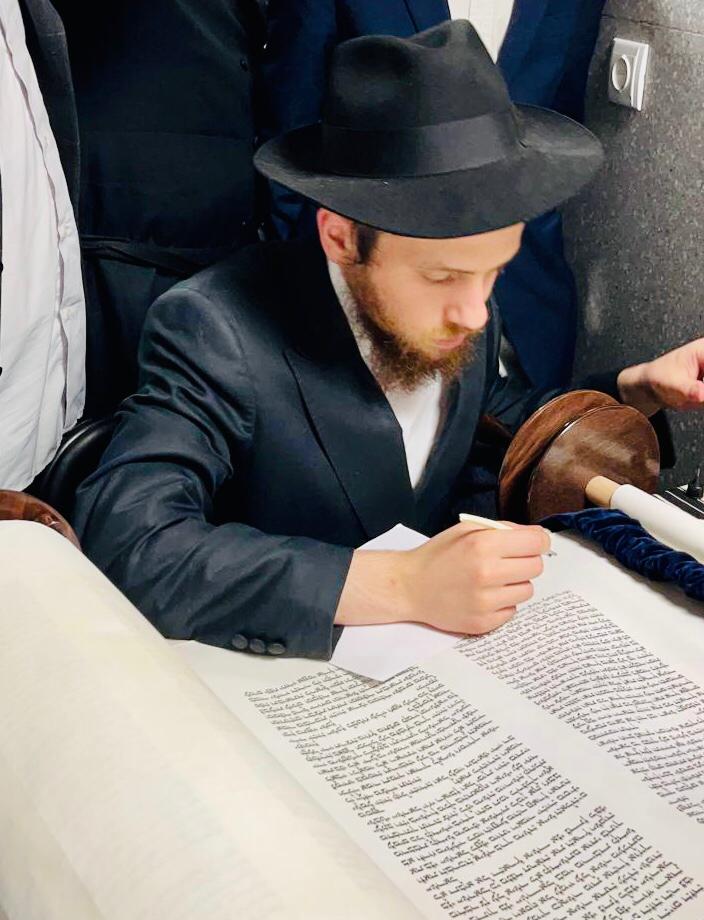
How did you manage to host the yahrzeit this year despite COVID-19?
"It was complex, as Kazakhstan is under lockdown, entering requires a special panel's approval. Still, we prepared in advance, negotiating with the government that anyone wanting to visit the gravesite could do so with prior coordination through me, submitting requests collectively for approval. The panel even created a 'Kazakhstan List' detailing all attendees' names. Ultimately, over 600 participants from around the world attended the event, which was stirring. This year, we also heeded the Baal Shem Tov's advice to write a Torah scroll during plagues for wealth and health, completing it with a grand ceremony at the Chabad House with a central prayer.
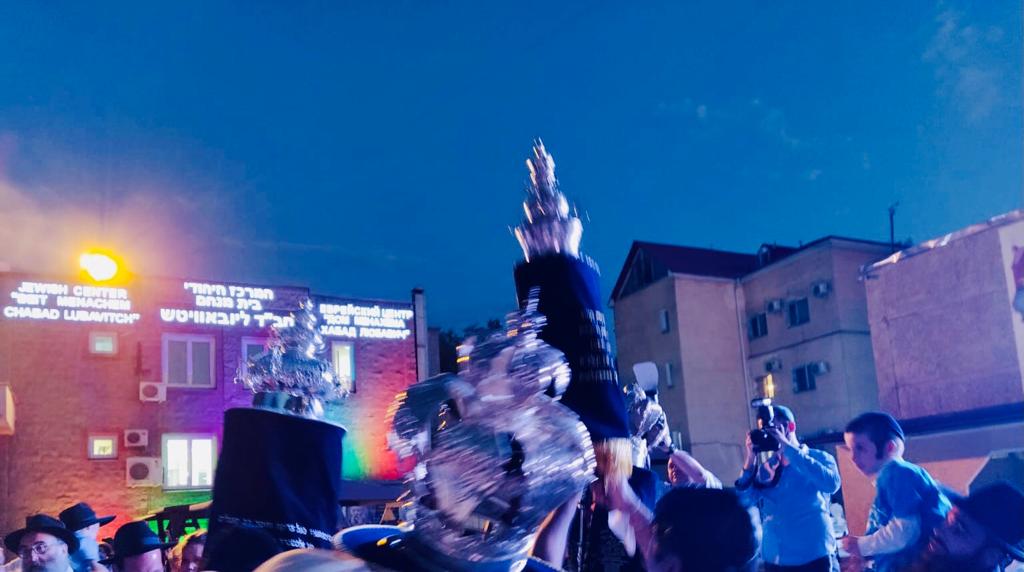
What measures did you take to prevent COVID-19 spread?
"Authorities required dividing worshipers into separate groups by country of origin, each entering the cemetery area independently.
Shortly after the visitors left Rabbi Levi Yitzchak's gravesite, Almaty turned red due to numerous infections. "We can't determine if there’s a connection to the yahrzeit, but since we ensured pilgrims separated from the local community, it's unlikely from us. We believe everything comes from above, our purpose and mission being to uphold and continue our traditions in all times and circumstances."

